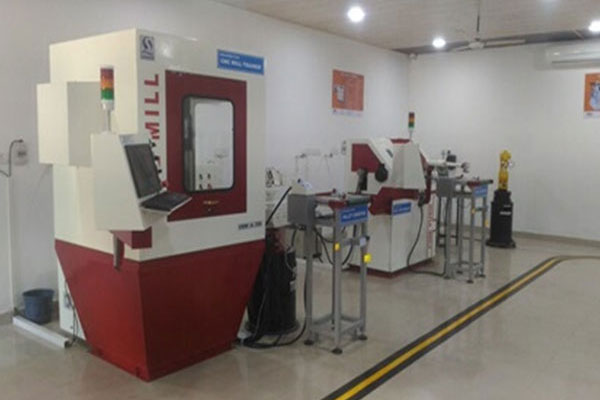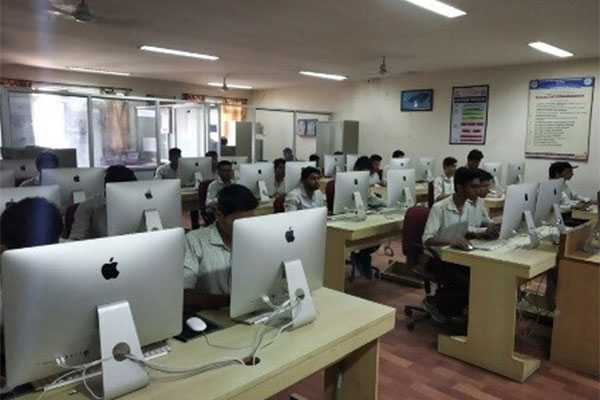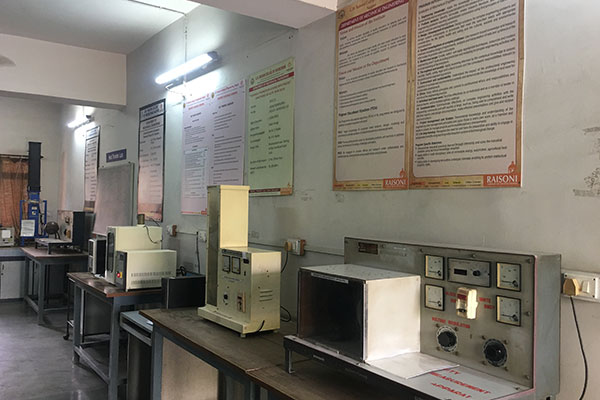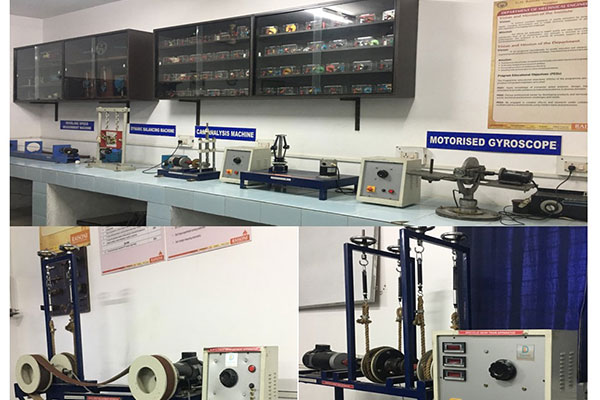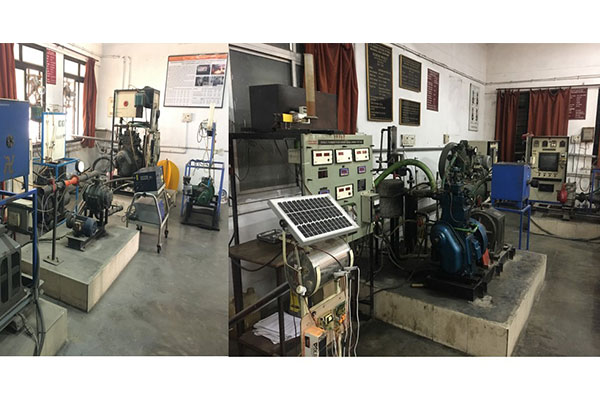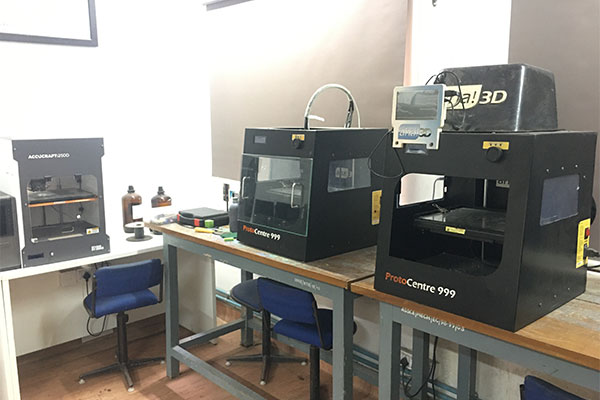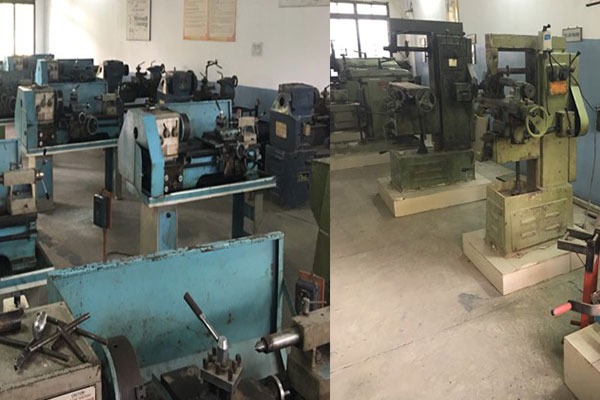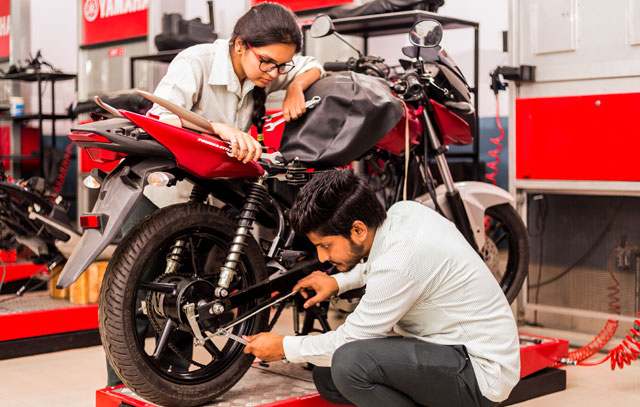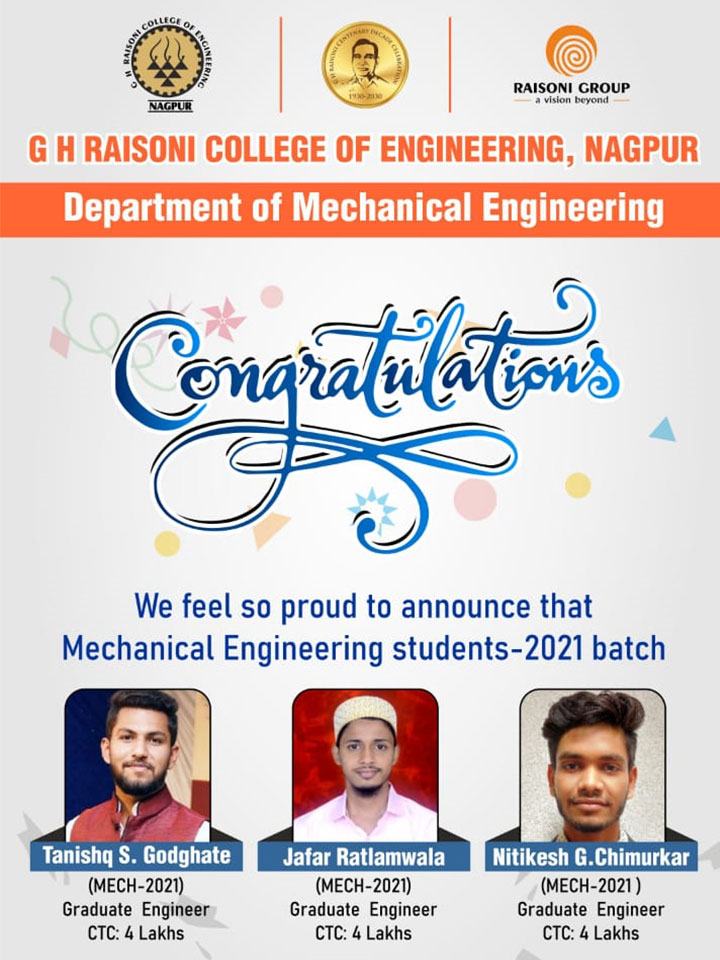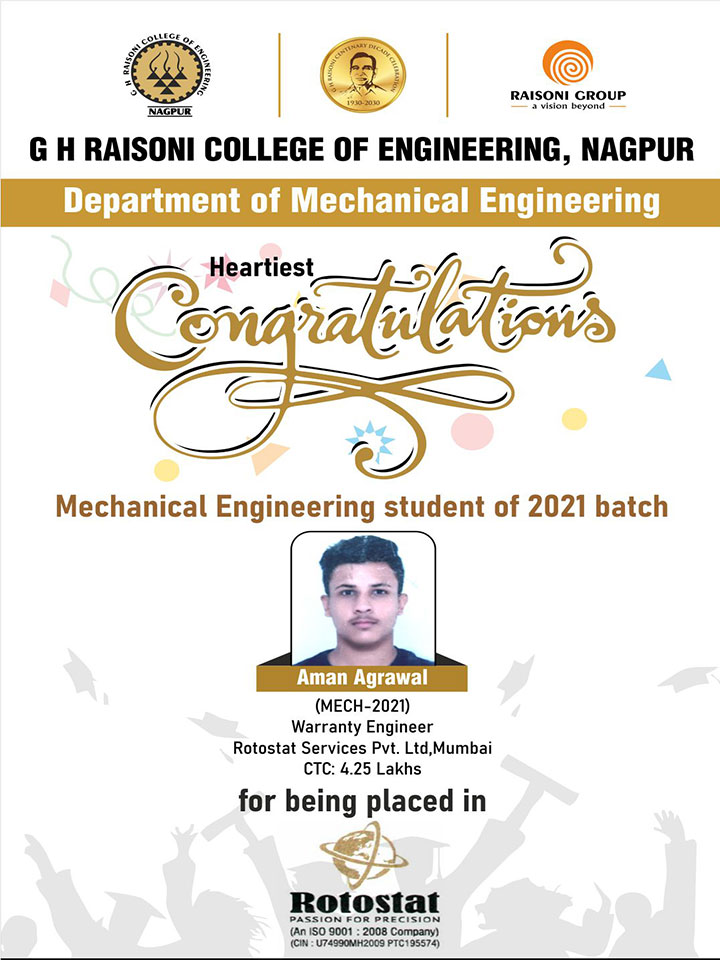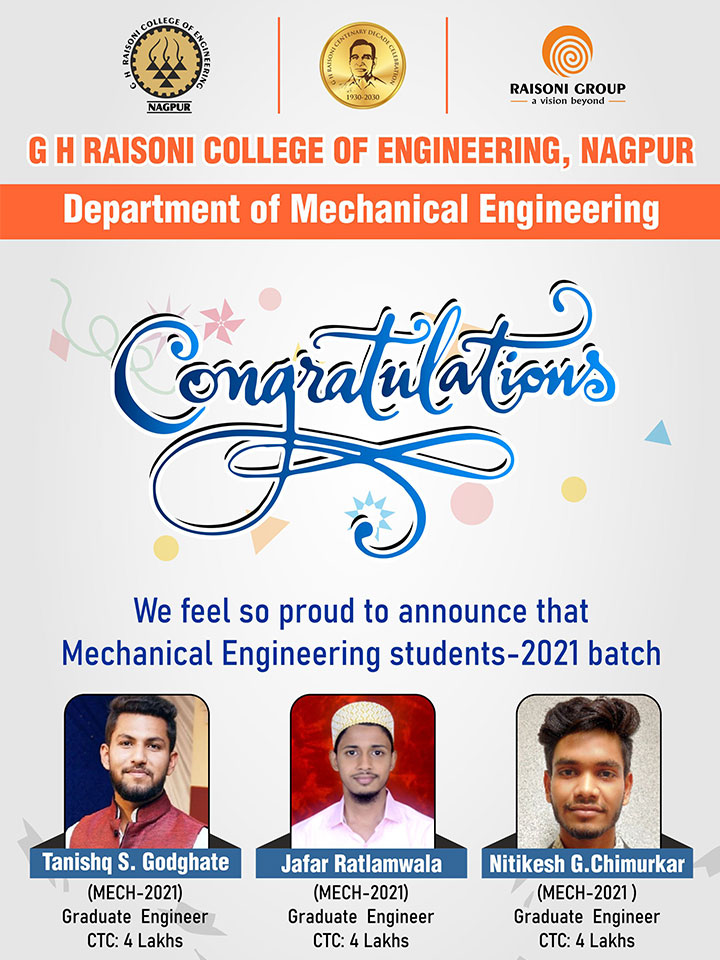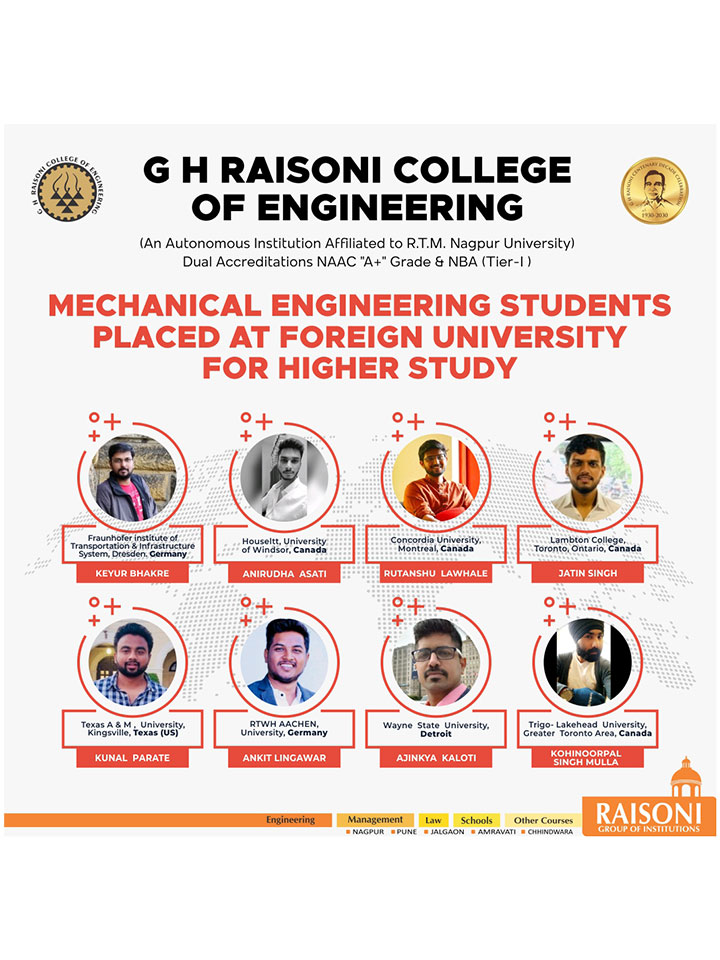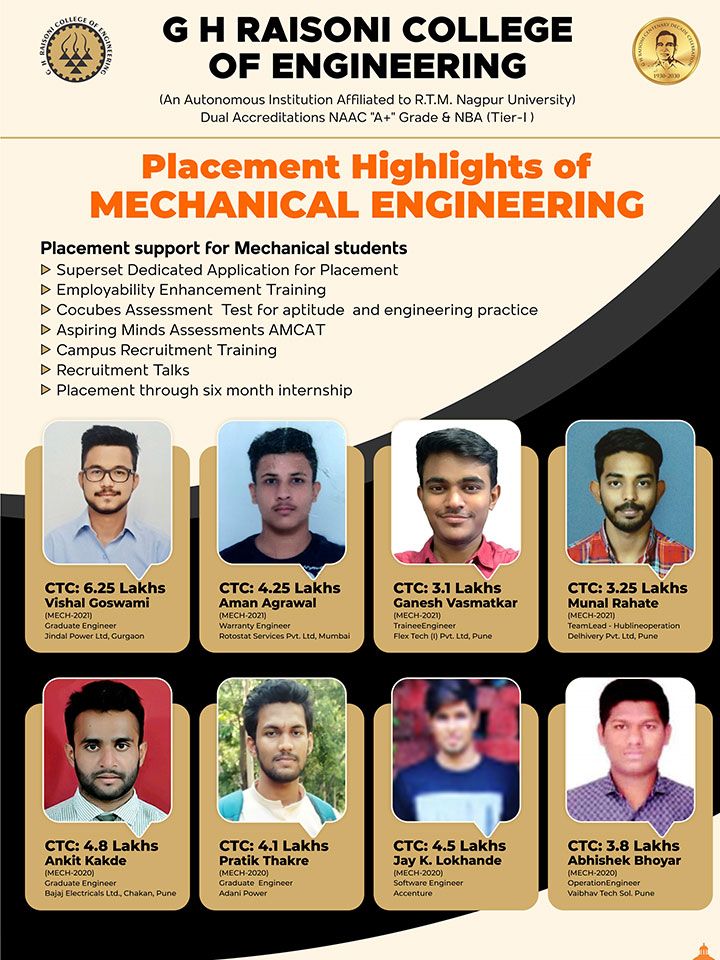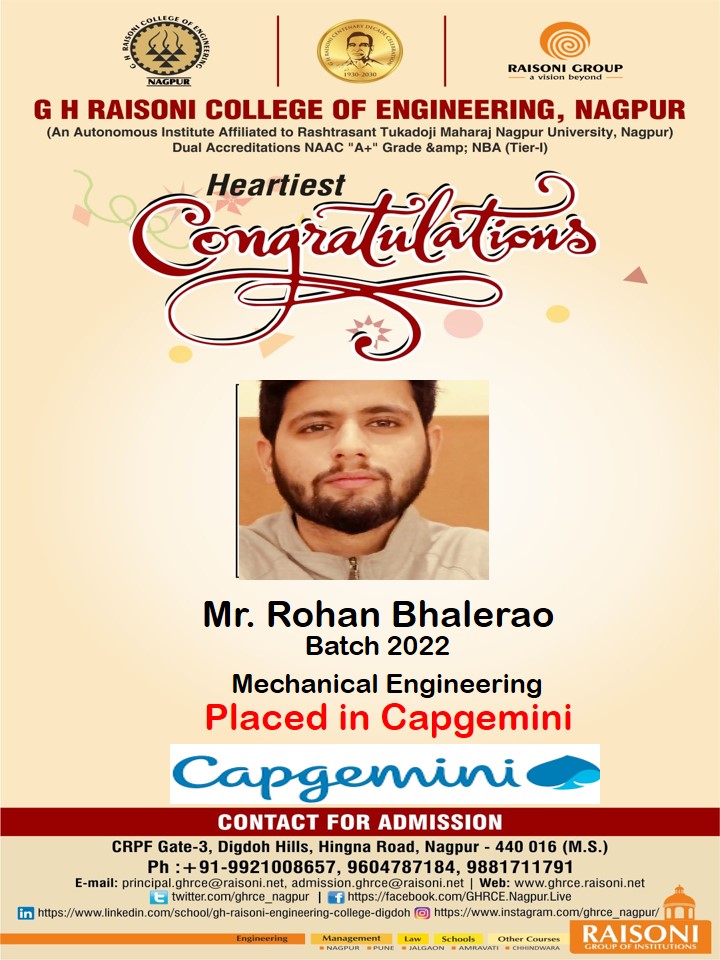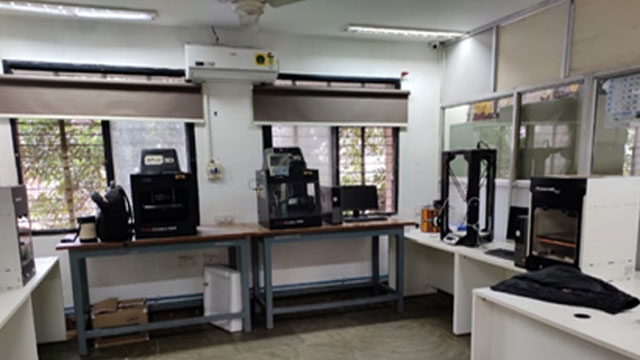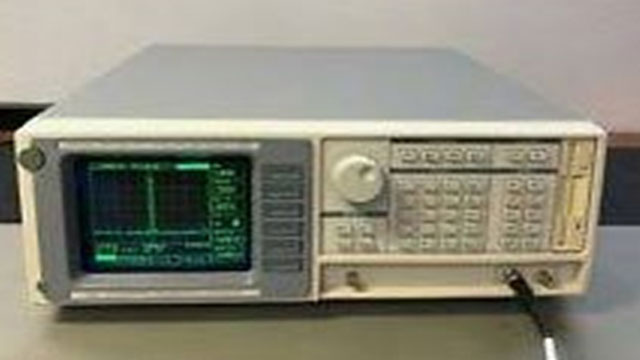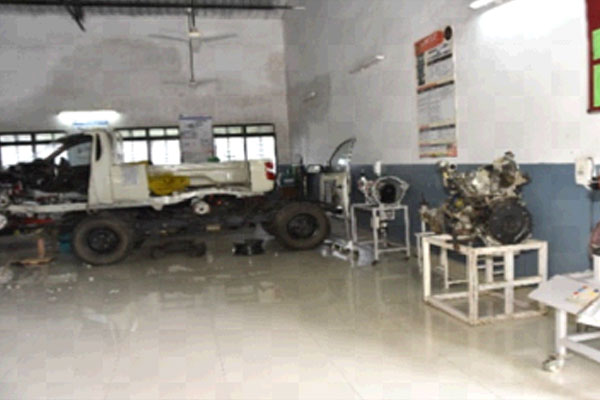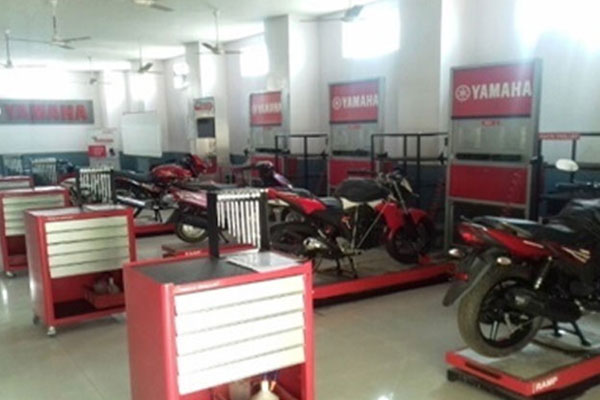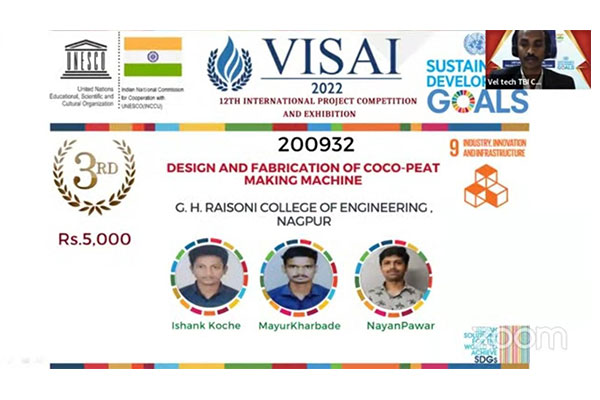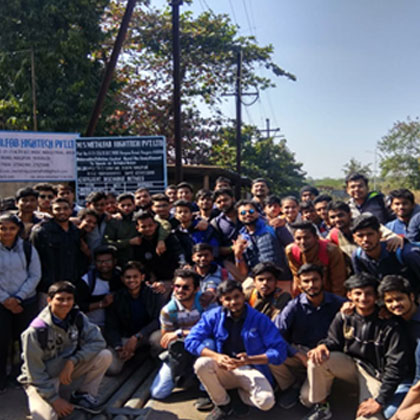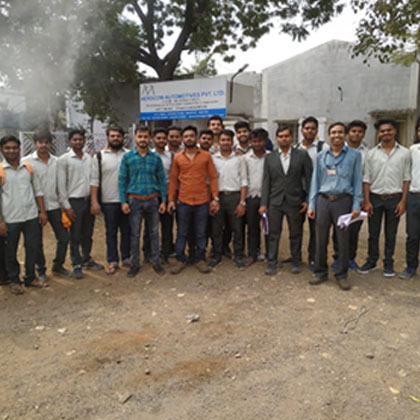Mechanical engineering is the branch of engineering which deals with the design, manufacturing, maintenance and testing of machines. It is also considered as one of the most diverse and versatile disciplines of engineering. Mechanical engineering also includes the application of mechanics, material science, applied mathematics and physics. With the rise of modern technology, mechanical engineering has witnessed new found importance with more and more students opting to learn less explored domains of robotics, mechatronics, nanotechnology, etc.
Mechanical engineering deal with the concepts of mechanics, thermodynamics, robotics, kinematics, structural mechanics, fluid mechanics, power sector, refrigeration, air conditioning sector and aerospace. There is an immense scope of mechanical engineering now-a-days. Job prospects on offer for skilled engineer are plenty and unending. It is expanding beyond its boundaries and more of interdisciplinary in nature. This field of engineering is the broadest of all engineering fields. Candidates can find employment in both government as well as private sector. Mechanical engineers are required to design, test, manufacture, install, operate and maintain a wide array of machines and mechanical systems that are used in industries as well as domestic appliances. As the manufacturing industry becomes increasingly more advanced and sophisticated, India will need more innovative and talented mechanical engineers.
The scope of mechanical engineering is vast even today. These concepts are used in designing some of the best and most efficient state-of-the-art motor vehicles, manufacturing units, aircrafts as well as other industrial machinery. Apart from the machinery and vehicles, mechanical engineers significantly contribute towards the development of power equipment, engines and complex machinery systems. Not only the design and manufacturing, even the maintenance and testing of such machinery and equipment are considered as responsibilities of mechanical engineers.
